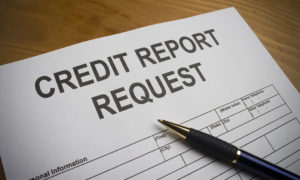Many people view a new year as a chance for a fresh start. It’s a great time to evaluate your financial health and set some goals for improvement. When you make resolutions, it’s important to set realistic, achievable goals so that you don’t get discouraged. Here are some ideas to get you started.
Create a budget and stick to it
Budgeting, or analyzing spending habits, is the best thing you can do for your finances. When you see how much money is spent on mandatory expenses, such as mortgage or rent, utilities, groceries, or loans, versus non-essential expenses, such as dining out, parties, gifts or vacations, you may find a way to reorganize expenses to make spending cuts, begin saving and start to pay off debt.
Once you’ve determined how much you spend on the necessities, compare what’s left over to your monthly income. Avoid setting budgets that are unrealistic. You want to establish a budget that you will stick to and be able to feel success.
Grow your savings account
The amount of savings you have ultimately depends on your financial situation, but most experts say you should have enough to cover six to nine months of living expenses. Unless you already have a substantial amount saved, it isn’t realistic to make this your goal for the year. Instead, work on small progress over time. Refer back to your budget and determine how much you can save each month. Ideally, you should save at least 10% every month. By the end of the year, you’ll be well on your way to a healthy savings account.
Pay down your debt
You already know that the sooner you can pay off your debt, the better. You’ll end up paying less overall by avoiding extra interest accrual.
If you’re able to, set a goal to aggressively pay down your debt this year. Pay more than the minimum amount due to see progress more quickly. Try to trim extra expenses from other budget categories so you can prioritize your debt.
Pay on time
If you’ve struggled with timely bill payments in the past, make it your goal this year to always pay on time. Set up automatic payments if you can, or create recurring reminders on your calendar or in your phone. You’ll save money because you won’t be hit with late payment fees, and your credit will improve.
Check your credit regularly
The best way to know where you stand financially is to regularly check your credit report. You’re entitled to one free credit report from each of the three credit reporting bureaus every 12 months. Your report has information about your current credit account standing and payment history. It also includes any negative occurrences, like car repossessions or accounts in default. Check your report regularly to make sure the information is accurate and up to date.
Improve your credit score
If your credit score is on the lower end, set a goal to improve it this year. Pay any overdue bill payments, and make sure you make all payments on time moving forward. Keep credit usage below 30% of your available credit. This means you shouldn’t spend more than $300 on a card with a limit of $1,000.
Keep in mind that if you apply for new credit this year, whether it’s an auto loan or a credit card, the lender will most likely perform a hard inquiry, which could lower your score.
Become more financially literate
Are there certain aspects of your finances that you struggle to understand? Take the time this year to learn more. Whether you want to do research into different ways to invest your money, or you want to have a better understanding of how interest accrues on your loans, having a solid understanding paves the way for healthier financial well being.
Seek Legal Help
Flitter Milz is a consumer protection law firm that represents victims with credit reporting problems, those that have received contact from abusive debt collectors, and have had vehicles wrongfully repossessed. Contact us for a free consultation to determine whether your consumer rights have been violated.

 Identity theft happens when someone uses your personal or financial information without your permission. It can damage your credit status and ability to utilize credit. If you suspect someone has stolen your identity, it’s important to take action immediately. The consequences can be disastrous, but following these steps will help secure your information and prevent your credit from getting tarnished by someone else’s actions.
Identity theft happens when someone uses your personal or financial information without your permission. It can damage your credit status and ability to utilize credit. If you suspect someone has stolen your identity, it’s important to take action immediately. The consequences can be disastrous, but following these steps will help secure your information and prevent your credit from getting tarnished by someone else’s actions. File a Police Report with the local police department and request a copy of the report for your files. A copy of the police report must accompany all disputes to the bank and or creditor.
File a Police Report with the local police department and request a copy of the report for your files. A copy of the police report must accompany all disputes to the bank and or creditor. When you discover suspicious charges or withdrawals on an account, immediately contact the bank or creditor and inform them that the charges were not made by you. Follow up the call with a letter confirming specific details of the issue. Keep a copy of all correspondence for your files.
When you discover suspicious charges or withdrawals on an account, immediately contact the bank or creditor and inform them that the charges were not made by you. Follow up the call with a letter confirming specific details of the issue. Keep a copy of all correspondence for your files. Identity Theft must be reported to the Federal Trade Commission through submission of an Identity Theft Affidavit. This form must be completed and signed in the presence of a law enforcement officer, then submitted to the Federal Trade Commission.
Identity Theft must be reported to the Federal Trade Commission through submission of an Identity Theft Affidavit. This form must be completed and signed in the presence of a law enforcement officer, then submitted to the Federal Trade Commission. After discovering suspicious activity on a credit card or bank account statement, contact the three main credit bureaus – Transunion, Experian and Equifax – to place a fraud alert on your credit file.
After discovering suspicious activity on a credit card or bank account statement, contact the three main credit bureaus – Transunion, Experian and Equifax – to place a fraud alert on your credit file. Request a copy of your credit report
Request a copy of your credit report After review of your credit reports and identification of accounts that do not belong to you, a Blocking Letter should be sent to the credit bureau. The Blocking Letter confirms:
After review of your credit reports and identification of accounts that do not belong to you, a Blocking Letter should be sent to the credit bureau. The Blocking Letter confirms: Organize your files with all information related to the identity theft. As each case of identity theft is unique, it can take months, or even years to untangle the fraud and restore your credit.
Organize your files with all information related to the identity theft. As each case of identity theft is unique, it can take months, or even years to untangle the fraud and restore your credit. Flitter Milz is a consumer protection law firm representing victims of credit reporting errors and privacy violations and contact from abusive collection tactics which stem from identity theft.
Flitter Milz is a consumer protection law firm representing victims of credit reporting errors and privacy violations and contact from abusive collection tactics which stem from identity theft.





